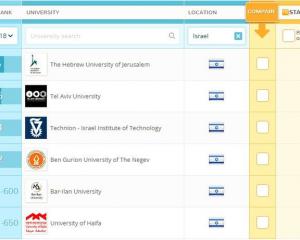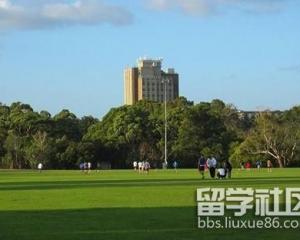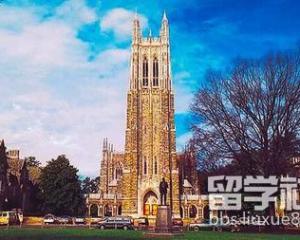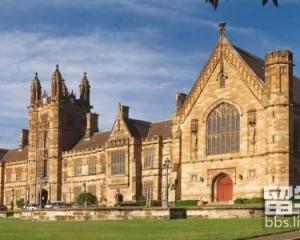富二代讀哈佛預備班 父親認為花20萬美元值
據美國福布斯網站刊載,一名“富二代”的家長記錄下了自己孩子留學的心得體會,父親認為20萬美元的哈佛預備班物有所值,文章摘錄如下:

這是你到哈佛大學讀書的第一天,也是你認識室友的時候。在你認識的那些同學里,有人名叫“XX七世”,他家世世代代畢業于哈佛;有個女孩的父親是西海岸大學的校長;還有個家伙的姓氏跟出資建造這幢樓的人一樣;另一個女生可能是印度某個貴族的孫女。
過不了多久,上海的霍華德•谷和朱利葉斯•高也會加入這一群體。這兩個孩子年僅16歲,是家族行業里的小王子,也是企業家之子。為了讓這兩個孩子進入哈佛大學,他們的父親各自花了近20萬美元,讓孩子參加一個為期幾年的預備班。當然,很多培訓項目的就在于此,但這個項目還有一個目的,那就是讓孩子進去之后依然能夠卓爾不群。
父母花的錢究竟讓他們的孩子得到什么呢?在上大學前的三四年里,家長用這些錢把孩子送到周末補習班和暑期學校,讓他們參加小團體旅行。孩子參加的這個項目名為“上海領導力學會”,為期兩年,授課老師大多是國內名牌大學的畢業生。教學采取的是因材施教,但也并不完全是中國式教學:班級的規模很小,學生可以隨意挑戰老師的觀點。
今年七月的某個炎熱上午,上海黃浦江東岸一座不起眼的寫字樓里,谷和高在一間教室里正在做著英語聽力題。谷對英語聽力小測驗中錯的一道題不服氣,他向老師李云問道:“我認為這個選項是錯誤的,你可能忽略了一些東西。”教他們的是李云,28歲,南京大學碩士畢業。她耐心地向谷解釋這道題的依據。但是谷并未輕易放棄自己的觀點:“我不認為答案是你那樣得出來的。”不過,谷的答案依舊沒有改過來。
一群來自特權階級的年輕人會有這樣的態度,并不出乎意料。谷的家族是亞洲最大的超市設備供應商之一。包括家樂福和樂購在內,都是他們的客戶,谷期盼著有一天繼承家業。高的家族企業則是中國電子行業和地產業的巨頭,他打算在畢業后開設一家投行。在這些希望子女繼承家業的富有家庭看來,為了讓子女進入美國的頂尖大學,花20萬美元算不了什么。比起開支與申請準備工作的花費,20萬美元算不上是天文數字。
中國,針對這些富孩子舉辦的培訓班漸漸流行起來。最近,中國官方媒體報道了一個由政府批準的培訓班。今年七月,100多名 “富二代”學子參加了這個培訓班。他們通過課堂學習有關商業權力交接的課程。培訓班還邀請解放軍軍人授課,讓他們接受黨的教育。
這些孩子與所謂的太子黨不盡相同。太子黨的孩子大多從北京的名校畢業。他們早早地在美國的常春藤盟校或英國頂尖名校占據了一席之地。這些孩子分別姓王、吳、薄、胡還有溫。
與劉亦婷相比,谷和高的情況也不大相同。劉亦婷起初是成都的一個普通女孩兒,后來獲得了哈佛大學的全額獎學金。2000年,她的父母出了一本暢銷書,內容與如何培養女兒進入哈佛大學有關,劉亦婷也因此聲名大噪,因為在中國的知識分子看來,哈佛是是美國最有名的大學。劉亦婷如今已29歲,她曾做過管理咨詢,后在紐約一家私人公司上班。
現如今,一萬個中國國學生里面會涌現出一個西方名牌大學學生,這種情況可謂屢見不鮮。就拿現在說,數以千計的中國特權學生正通過父輩邁上了一條平坦的人生之道。他們不僅可以參加名牌高中和周末預備班,還能在整個申請過程中享受咨詢服務,包括面試和留學文書輔導。他們甚至可以讓別人幫他們撰寫各種留學文書。當然,這種投機取巧的做法只適用于一些檔次較低的學校,因為較少的中國學生申請此類學校。
中國富人階級正在崛起,他們的階級敵人也隨之產生。領導力學會的中文名為“光榮家庭傳統教育”,目前招收的學生人數達17名。他們同意讓福布斯的記者來聽課,并采訪谷和高,但要求記者不要透露學生姓名和家族企業名。
該項目的創始人周力偉,36歲,生于江蘇,北京大學畢業(北大素有中國哈佛大學的美譽)。周立偉說,2001年和2002年去美國大學訪問的時候,他意識到文科教育在美國的價值。但在谷看來,這個項目只是他在上海精英高中之外的嘗試與研究。谷說,他也在“學習如何踐行經商之道。”此外,谷負責打理哥哥的葡萄酒產業,這一產業的主要買家是學生的家長。
此時的谷顯得有些頑皮,他笑著說:“這樣一來,我可以賺點零花錢,因為我的股票跌了。”言語之中似乎已經暗示,他已經為進入哈佛大學做好了準備。

It's your first day as a freshman at Harvard, time to meet the dorm mates. There's the guy whose last name ends in VII and whose forebears all went to Harvard; the girl whose father is president of a West Coast university; the guy whose last name is the same as the name on the building; the girl who might be a granddaughter of an Indian potentate.
Joining soon, so they hope, are Howard Gu and Julius Gao of Shanghai. Gu and Gao, both 16, are little princes of industry, the sons of entrepreneurs who each spent almost $200,000 on a multiyear program to prepare their scions for a prestigious American university--for getting in, yes, as many programs try to do, but also for excelling when they get there.
What do they get for their parents' money? Weekend classes, summer schools and small group trips over three to four years before they start school at American colleges. Their teachers at the program, the two-year-old Leadership Academy Shanghai, are mostly recent graduates from the best universities in China. The instruction style is bespoke and not very Confucian: very small classes, with students challenging their teachers.
"I think that's not the correct choice. I think you might have missed some facts," Gu tells his teacher, Li Yun, after missing an answer on a quiz designed to test English listening skills. They are in a classroom in a nondescript office tower on the east bank of the Huangpu River in Shanghai, on a recent hot July morning. Gu and Gao are the only students, and Li, 28, armed with a master's degree from Nanjing University, patiently explains to Gu why he was wrong. Gu doesn't give up easily: "I don't think that's how you find the answer." (He is still wrong.)
Of course, one might expect such attitude from young members of a privileged class. Gu's family runs one of the largest supermarket equipment supply businesses in Asia, with clients including Carrefour and Tesco ( TESO - news - people ), and he hopes to someday run the business. Gao's family's business is a big domestic player in electronics and real estate, and he plans to land at an investment bank after college. For wealthy families that want their scions to take over business empires, the $200,000 price tag on a diploma from a top-tier U.S. college is not too high and neither is a like-size expenditure on the prep work.
Special classes for these children are coming into vogue. A government-sanctioned program in July for more than 100 members of this "Second-Generation Rich" was featured recently in state media, with classes on the secrets of handling power succession and, from the People's Liberation Army, lessons on party loyalty.
These are a slightly different breed from the so-called princelings, children of political leaders who have already become a staple at Ivy League universities and posh British institutions, matriculating from elite schools in Beijing with last names like Wang, Wu, Bo and maybe Hu and Wen.
Gu and Gao are also not from the mold that made Liu Yiting, the little-girl-that- could from an interior city (Chengdu) who made it into Harvard on a full scholarship. She became famous in 2000 when her parents published a bestselling book about how they raised her to attend the American university best known to Chinese intelligentsia. Liu, 29, went on to a career in management consulting and then private equity in New York City.
China has moved beyond that stage of wide-eyed wonder at one-in-a-million shots at an elite Western university. Now there are thousands of privileged students following a well-beaten path, a system that involves much more than elite high schools and weekend test prep. They receive consulting on the entire application process, including tutoring for interviews and essays--some of which are written for the students, a trick that is said to work better at lower-tier U.S. universities, where fewer Chinese students apply.
The rising rich generation does have class enemies in China. The Leadership Academy--known in Chinese as Zedi Chuancheng Jiaoyu, or roughly "Glory of Family Heritage Education"--allowed FORBES to sit in on classes and interview Gu and Gao, 2 of the 17 students currently enrolled, only if their Chinese names (Howard and Julius are Americanized nicknames) and the names of their families' businesses were kept out of print.
Academy cofounder Zhou Liwei, 36, a Jiangsu province native and graduate of Peking University--China's Harvard--says he learned the value of a liberal arts education in the U.S. while visiting American universities during 2001 and 2002. Gu, for his part, says the academy is only part of his extra studies outside of his elite Shanghai high school. He is also "practicing how to run a business," he says, helping his older brother sell wines, mostly to parents of classmates.
"This can also earn me some pocket money," Gu says with an impish smile, "as the stock I bought has gone down." Sounds like he's already prepared for freshman week at Harvard.
更多精彩資訊請關注查字典資訊網,我們將持續為您更新最新資訊!




